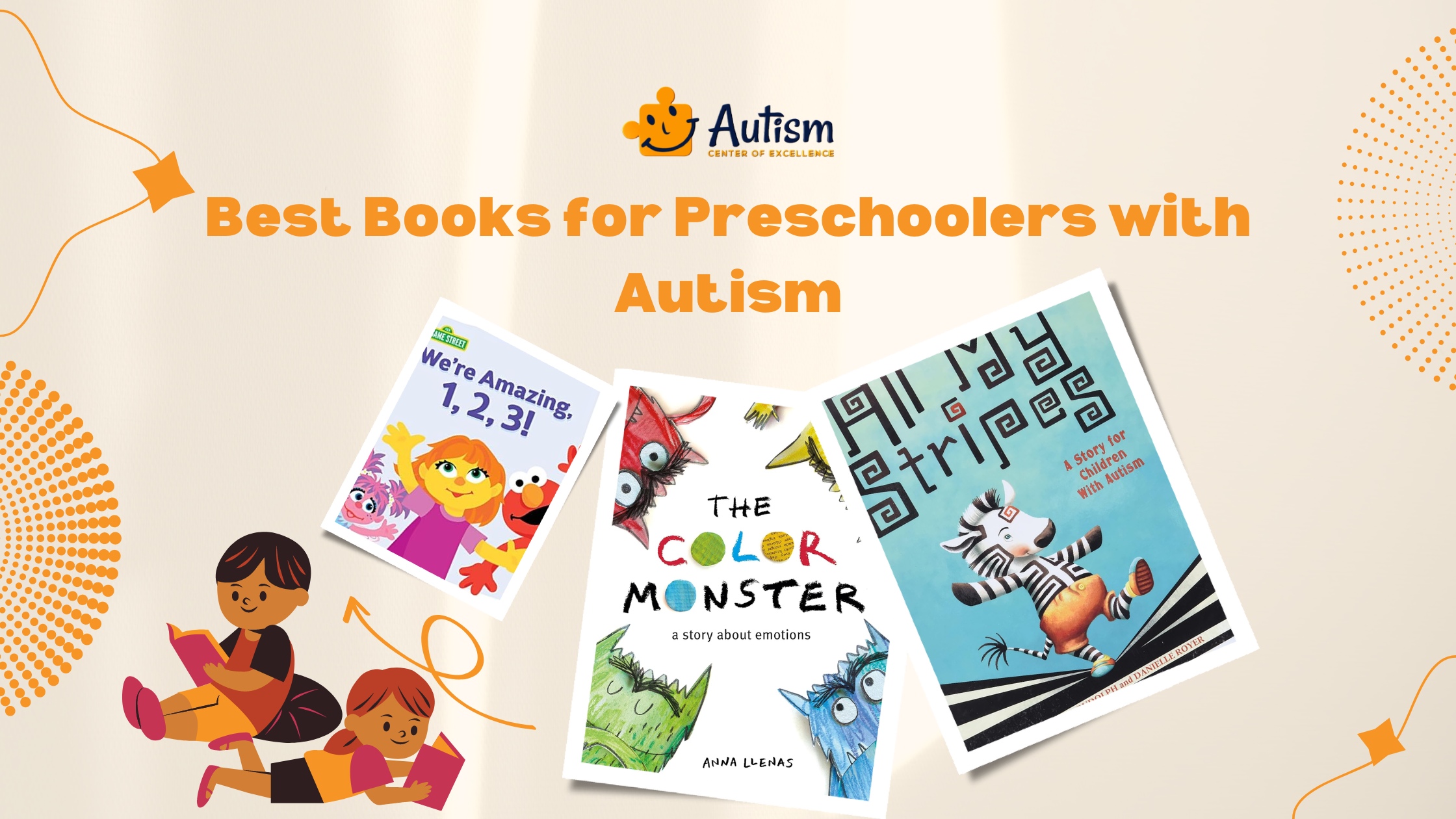Books can be of the most transformative experiences for preschoolers with autism. It is not only the path to the imagination and learning, but the right books, they can also drastically increase the communication skill, the sense of the social understanding and the sensory engagement of autistic kids. For parents, carers, and educators, it is vital in creating an inclusive and nurturing learning space, for preschoolers with autism, to find the best books that suit their needs of reading. This guide book constitutes a collection of books designed for the particular purpose of providing autistic preschoolers with entertainment and education.
What to Look for in Books for Preschoolers with Autism
When selecting books for preschoolers with autism, consider the following characteristics:
🧾Simple Language
Books with simple, clear language are easier for children with autism to understand. Short sentences and straightforward vocabulary help in reducing potential confusion and frustration.
👧Engaging Illustrations
Bright, colorful illustrations can capture a child’s interest and support their understanding of the story. Visuals should be clear and relevant to the text, aiding in comprehension.
💬Repetitive Text
Repetition is beneficial for children with autism as it reinforces learning and promotes memory retention. Books with repetitive phrases or patterns can be particularly engaging and comforting.
✌️Interactive Elements
Interactive books that include flaps, textures, or sound buttons can make reading a multi-sensory experience. These elements can keep children engaged and make the reading process more enjoyable.
📤Sensory-Friendly Materials
Books made from durable, easy-to-clean materials are ideal for children who might explore them through touch or even taste. Board books and those with tactile elements cater to sensory preferences.
🤌Themes of Social Interaction
Books that depict social scenarios and model appropriate behaviors can help children with autism understand and navigate social interactions. Stories about friendship, sharing, and emotions are particularly valuable.
Top 10 Books for Preschoolers with Autism
#1. “We’re Amazing, 1, 2, 3!” by Leslie Kimmelman
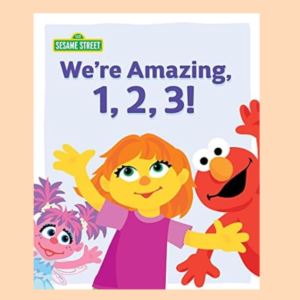 Synopsis: This Sesame Street book follows Elmo and his friend Julia, who has autism, showcasing their friendship and everyday activities.
Synopsis: This Sesame Street book follows Elmo and his friend Julia, who has autism, showcasing their friendship and everyday activities.
Key Features: Simple language, engaging illustrations, themes of friendship and inclusion.
Why It’s Recommended: This book introduces the concept of autism in a positive, relatable way.
Where to Buy: Amazon
#2. “The Color Monster: A Story About Emotions” by Anna Llenas
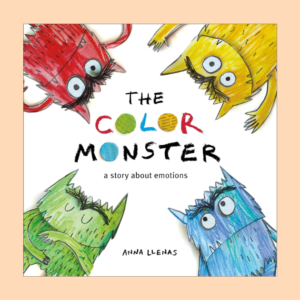 Synopsis: The Color Monster wakes up feeling confused and learns to sort his mixed-up emotions.
Synopsis: The Color Monster wakes up feeling confused and learns to sort his mixed-up emotions.
Key Features: Bright illustrations, interactive pop-ups, focus on emotional awareness.
Why It’s Recommended: Helps children recognize and articulate their emotions.
Where to Buy: Amazon
#3. “All My Stripes: A Story for Children with Autism” by Shaina Rudolph and Danielle Royer
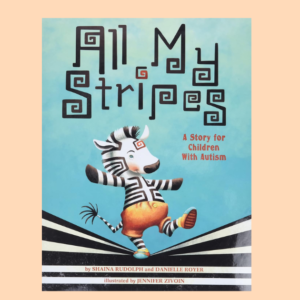 Synopsis: Zane the zebra feels different because of his autism stripes but learns that these differences are what make him special.
Synopsis: Zane the zebra feels different because of his autism stripes but learns that these differences are what make him special.
Key Features: Simple language, engaging illustrations, themes of self-acceptance.
Why It’s Recommended: Encourages children to embrace their uniqueness.
Where to Buy: Amazon
4. “I See Things Differently: A First Look at Autism” by Pat Thomas
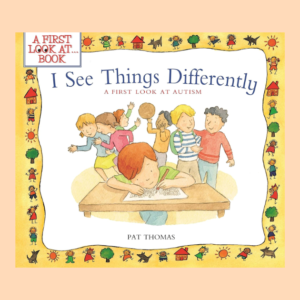
Synopsis: This book explains autism in a straightforward, child-friendly manner.
Key Features: Gentle language, clear illustrations, informative content.
Why It’s Recommended: Provides a basic understanding of autism for young children.
Where to Buy: Amazon
5. “The Adventures of Stretch More: Pick-Your-Path Stories for Solving Problems Together” by Scott Bellini
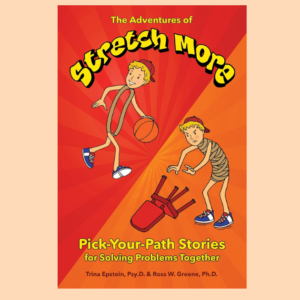 Synopsis: Follow Stretch More, a character who helps children solve social problems through various scenarios.
Synopsis: Follow Stretch More, a character who helps children solve social problems through various scenarios.
Key Features: Interactive, problem-solving focus, engaging illustrations.
Why It’s Recommended: Teaches social skills and decision-making.
Where to Buy: Amazon
6. “My Friend with Autism” by Beverly Bishop
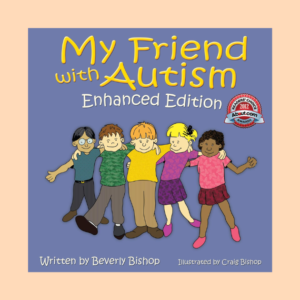 Synopsis: This book describes what it’s like to have a friend with autism, emphasizing understanding and acceptance
Synopsis: This book describes what it’s like to have a friend with autism, emphasizing understanding and acceptance
Key Features: Simple language, clear visuals, focus on friendship.
Why It’s Recommended: Promotes empathy and acceptance among peers.
Where to Buy: Amazon
7. “Goodnight Moon” by Margaret Wise Brown
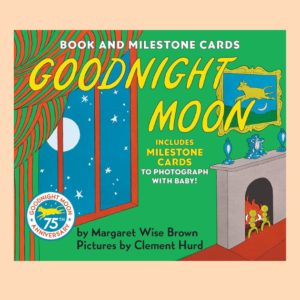
Synopsis: A classic bedtime story that features simple rhymes and soothing illustrations.
Key Features: Rhyming text, repetitive structure, calming visuals.
Why It’s Recommended: Perfect for bedtime routines, providing comfort and predictability.
Where to Buy: Amazon
8. “A Friend Like Simon” by Kate Gaynor
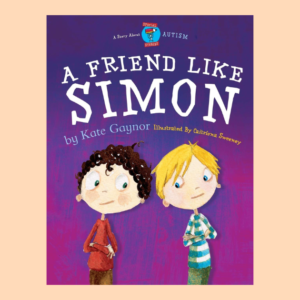 Synopsis: A story about a friendship between a boy and his classmate Simon, who has autism.
Synopsis: A story about a friendship between a boy and his classmate Simon, who has autism.
Key Features: Simple language, engaging illustrations, themes of friendship and acceptance.
Why It’s Recommended: Highlights the importance of inclusion and understanding.
Where to Buy: Amazon
9. “Too Sticky! Sensory Issues with Autism” by Jen Malia
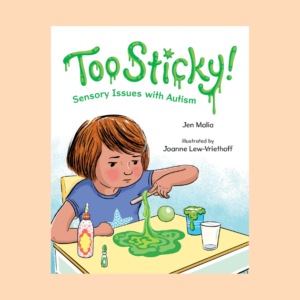 Synopsis: Holly faces her fears about a slime experiment at school, addressing sensory issues.
Synopsis: Holly faces her fears about a slime experiment at school, addressing sensory issues.
Key Features: Clear language, relatable story, focus on sensory experiences.
Why It’s Recommended: Helps children with sensory sensitivities relate and find coping mechanisms.
Where to Buy: Amazon
10. “Hug Machine” by Scott Campbell
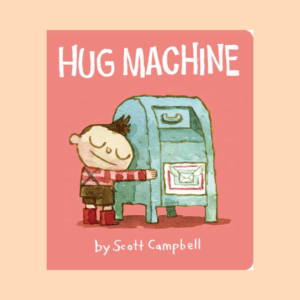 Synopsis: A delightful story about a little boy who loves giving hugs to everyone and everything.
Synopsis: A delightful story about a little boy who loves giving hugs to everyone and everything.
Key Features: Fun illustrations, simple text, themes of affection and connection.
Why It’s Recommended: Encourages positive social interactions in a playful way.
Where to Buy: Amazon
Additional Resources and Tips
>>Reading Routines
Establish consistent reading routines to create a sense of stability and predictability. Incorporate books into daily activities, such as bedtime or quiet time, to make reading a regular part of your child’s day.
>>Interactive Reading
Engage your child by asking questions about the story, encouraging them to point out pictures, and involving them in turning pages. This interactive approach can enhance comprehension and enjoyment.
>>Additional Resources
Consider using apps like “Autism Read & Write Pro” to supplement reading activities. Join support groups, either online or in your community, to share experiences and get recommendations from other parents and educators.
Join Our Weekly Newsletters!
Subscribe now to stay updated with our latest email updates.
About AutismCOE (Autism Center of Excellence)
Autism Center of Excellence, located in North Carolina and Virginia, provides a wide range of services to children aged 2 to 14 years. Our services are available at home and in center-based environments, making it convenient for families.
In North Carolina, we serve Durham, Raleigh, Chapel Hill, Apex, Garner, Wake Forest, Cary, and Fayetteville. Meanwhile, in Virginia, we extend our services to Richmond, Midlothian, Chester, Henrico, Tuckahoe, Lynchburg, Petersburg, North Chesterfield, Chesterfield, Colonial Heights, Charlottesville, Chesapeake, Norfolk, Suffolk, and Virginia Beach.
AutismCOE services include:
ABA Therapy
The Autism Center of Excellence (AutismCOE) provides top-rated Applied Behavior Analysis (ABA) therapy programs designed to support children with autism. Known for its personalized approach, AutismCOE tailors each therapy plan to meet the unique needs of every child, ensuring their journey towards success and independence.
Autism Early Intervention Program
The Autism Center of Excellence (AutismCOE) proudly offers an Autism Early Intervention Program designed to support young children with autism spectrum disorder (ASD) in their critical developmental years. This program aims to provide early, intensive, and individualized interventions to improve outcomes and foster independence.
Autism School Readiness Program
The Autism Center of Excellence (AutismCOE) offers a specialized Autism School Readiness Program designed to prepare children with autism spectrum disorder (ASD) for successful entry into a school environment. This program focuses on equipping children with the essential skills they need to thrive academically, socially, and emotionally.
Speech Therapy
At the Autism Center of Excellence (AutismCOE), our dedicated team of Speech Therapists is committed to helping children enhance their communication abilities. We understand that effective communication is crucial for a child’s overall development and their ability to interact meaningfully with others. Our speech therapy services are designed to provide personalized, evidence-based interventions that address each child’s unique needs.
Specialized Parent Training
We provide training to parents to help them support their child’s development.
Center-Based ABA Therapy
The Autism Center of Excellence (AutismCOE) offers premier Center-Based Applied Behavior Analysis (ABA) Therapy services designed to support children with autism spectrum disorder (ASD). Our program focuses on providing comprehensive, structured, and individualized interventions in a supportive and engaging environment.
In-Home ABA Therapy
The Autism Center of Excellence (AutismCOE) offers specialized In-Home Applied Behavior Analysis (ABA) Therapy services designed to deliver personalized and effective support for children with autism spectrum disorder (ASD) in the comfort of their own homes. Our program is tailored to meet the unique needs of each child, promoting skill development and behavioral improvements in a familiar and convenient setting.
Frequently Asked Questions & Answer
What Are the Benefits of Reading to Preschoolers With Autism?
Reading helps improve communication skills, fosters social understanding, enhances sensory engagement, and provides a calming routine.
What Characteristics Should I Look for in Books for Preschoolers With Autism?
Look for simple language, engaging illustrations, repetitive text, interactive elements, sensory-friendly materials, and themes of social interaction.
How Can Interactive Elements in Books Benefit a Child With Autism?
Interactive elements such as flaps, textures, and sound buttons can make reading more engaging and enjoyable, providing multi-sensory experiences that cater to different sensory preferences.
Why is It Important to Choose Books With Repetitive Text for Autistic Preschoolers?
Repetitive text reinforces learning, promotes memory retention, and offers a predictable structure that can be comforting for children with autism.
Where Can I Purchase the Recommended Books for Preschoolers With Autism?
The blog post provides links to Amazon and other relevant stores where you can buy the suggested books.
Conclusion
The choice of books for preschoolers with autism can be a significant factor in their development as well as their pleasure of reading sessions. Through the choice of books which fits their individual needs, such as those mentioned in this example, educators and parents will provide invaluable support to them. Spread the list around other parents, caregivers, and teachers to continue sharing the reading joy. Please do not hesitate to add your advice and stories to expand the value of this tool.
AutismCOE (Autism Center of Excellence) offers ABA therapy, speech therapy, and occupational therapy to children from 2 to 14 years old in-home and center-based environments.

Bhavika Bhasin
Bhavika Bhasin is the Research and Marketing officer at AutismCOE. She works with children and adults with ASD. Her clinical research includes evaluating various available autism screening and diagnosis methods and their efficacy. She is currently developing a novel screening exam that is indicated to be more accurate than the existing available exams. She is also writes articles papers for various publications.

A Belief In Every Child’s Potential
Start your child’s individualized program for Autism Spectrum Disorder (ASD) to increase communication, social interaction, safety awareness, and independent living skills while reducing challenging behaviors.

